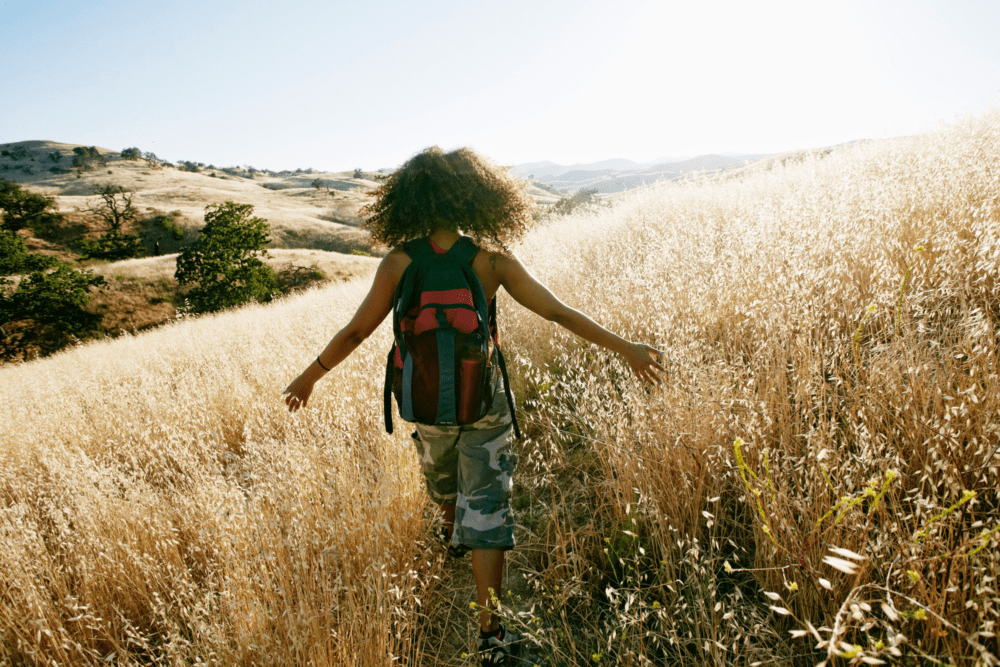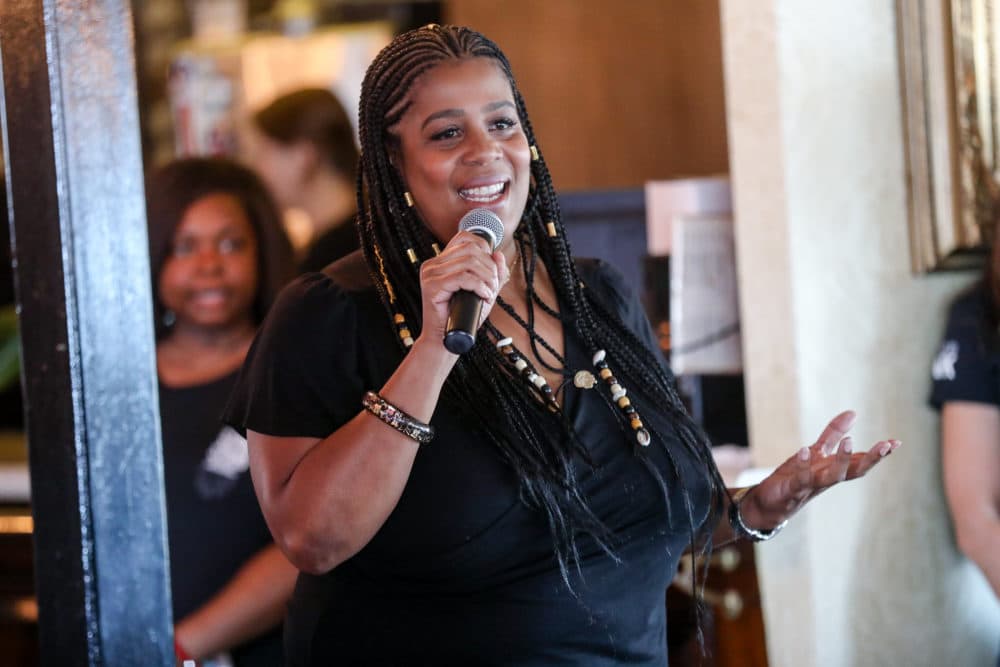Advertisement
Outdoor Afro Connects Black Americans With Nature
Resume
On any given Sunday in 42 cities throughout the country, you might spot an organized group of Black people hiking, skiing or birdwatching.
These groups are part of a larger collective called Outdoor Afro, a nonprofit organization that aims to reclaim nature for Black people.
Now with the pandemic, the group is larger than ever, defying the misconception that Black people aren't that into nature. It's a stereotype rooted in the fact that for a long time Black people were denied access to outdoor spaces.
Rue Mapp was tired of those stereotypes. That’s why the former Morgan Stanley analyst founded Outdoor Afro in 2009. More than a decade later, Outdoor Afro has 80 leaders across the U.S. and it's growing through this pandemic.
“Those trees, they don't know what color you are. And those birds are going to sing no matter how much money is in your account. Those flowers are going to bloom,” she says. “And so for me, the outdoors has represented not only a way to get more healthy and more connected with who you are, but it's also a place to experience freedom.”
Mapp says she grew up in a “nature-loving household,” which helped her become more confident, stronger and healthier. But as she got older, she realized there weren’t a lot of Black people in those outdoor spaces.
“I just didn't see enough people who looked like me, and I also noticed that we had a representation problem,” she says. “And that's what Outdoor Afro set out to be, back in 2009, as a blog from my kitchen table to tell a new story and to break those stereotypes.”

After Ahmaud Arbery was shot by two white men while jogging in Georgia this past May, James Ravenell II, the co-founder of Black Runners Connection, told Here & Now that he is constantly aware of how his presence is perceived when he’s outdoors. He wears bright colors, and he even tries to make noise to let people know he's coming so they aren't startled by him.
Mapp understands this dual state of consciousness that many Black people feel when they’re outdoors. This is why when she started Outdoor Afro, she realized Black people were more comfortable outdoors when in groups.
“The way that our community likes to get outside is in groups,” she says. “And so we meet people at that need, and we find that people's confidence and their nature swagger improves where people can feel a lot more comfortable going outside and doing things by themselves.”
Another goal of Outdoor Afro is to reclaim the stories of Black people enjoying nature, Mapp says. One of those people was American abolitionist Harriet Tubman, who escaped slavery along the Underground Railroad.
“She absolutely was a wilderness leader,” Mapp says. “That in the cover of night, she had to understand the stars. She had to understand wildlife, how they called. She was reading the moss on trees.”
Mapp also implores the members of Outdoor Afro to think about people in their own families who loved nature. Telling those stories, she says, will help break the stereotype that Black people don’t like to be outside.
“I think about my dad, who loved the outdoors and considered himself a cowboy, and we used to recycle things,” she says. “And, you know, he would have probably never called himself a conservationist or even an environmentalist, and so, so much of our work is about telling this new narrative.”
Depending on where you live, access to the natural world can really be hard. But Mapp says no matter where you are, you can reconnect with nature — because nature is everywhere.
“We have to reimagine that nature access is really right outside your window, right on your fire escape, your apartment balcony, outside your front door, and that you can tap into that nature,” she says. “It's all around us and everyone can access it.”
Cristina Kim produced and edited this interview for broadcast with Todd Mundt. Samantha Raphelson adapted it for the web.
This segment aired on February 19, 2021.

